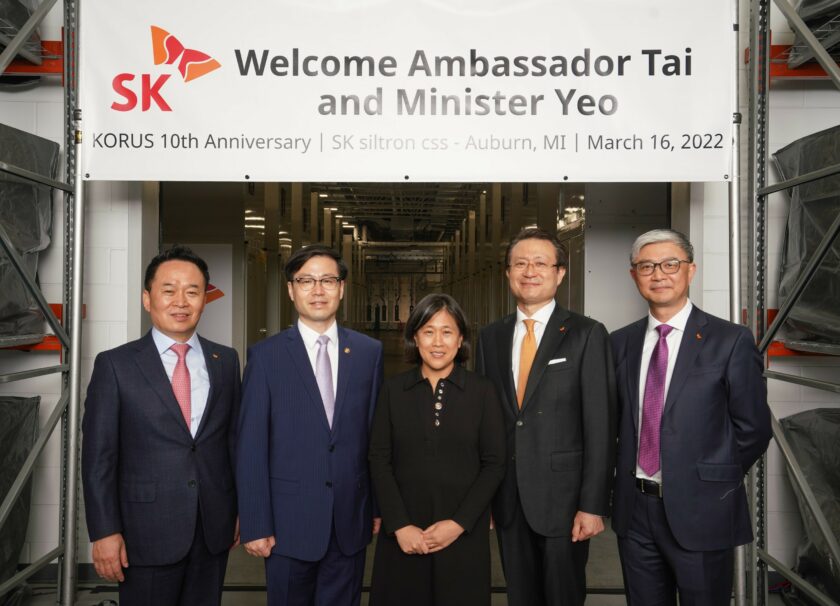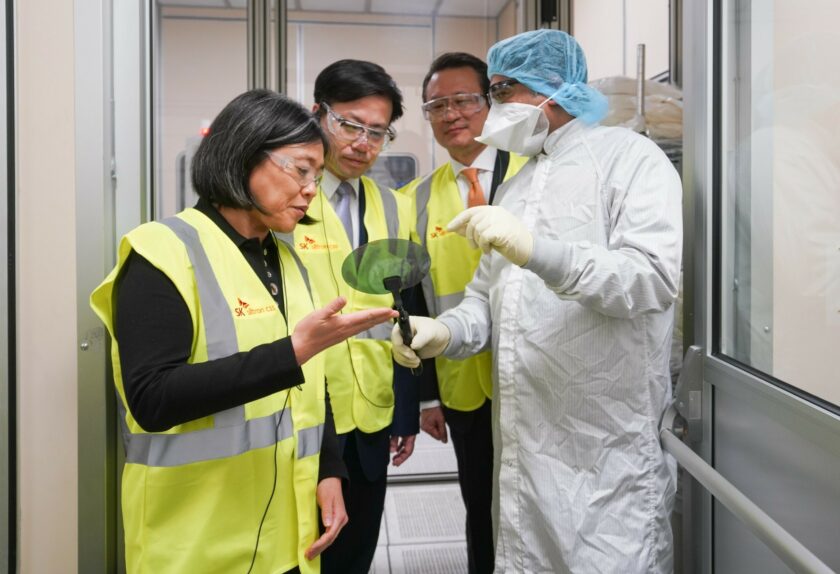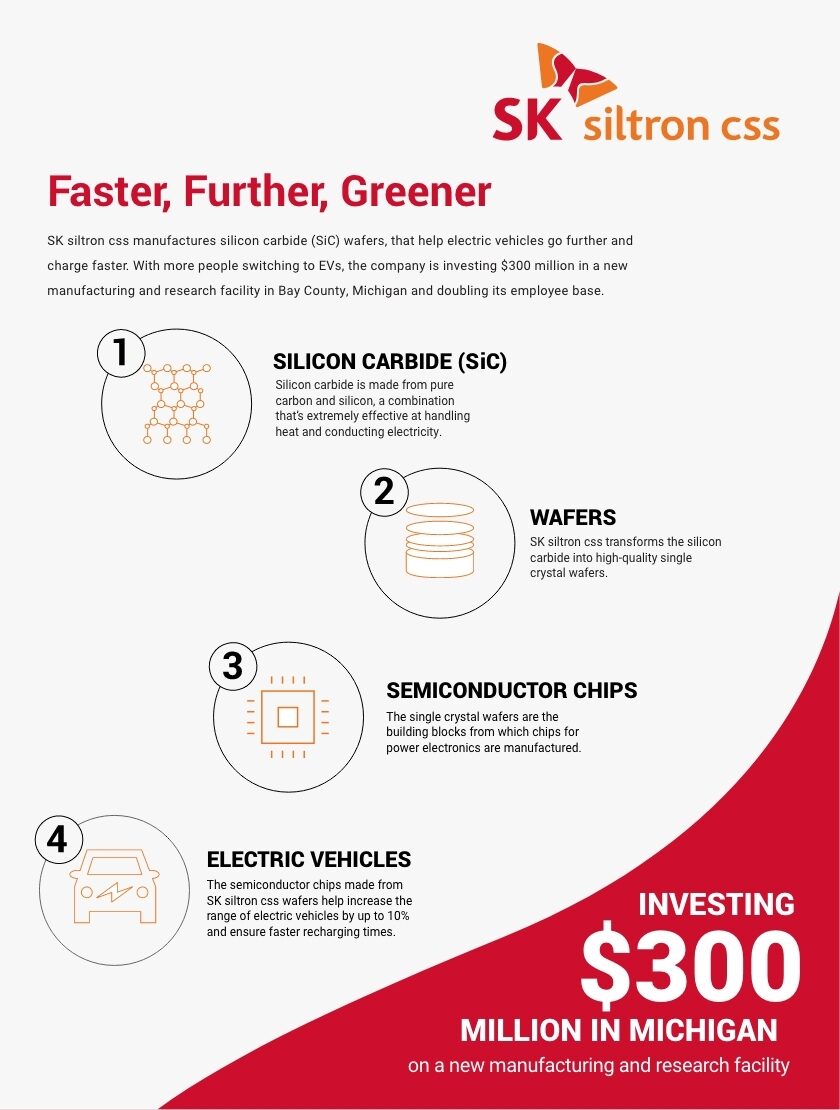Public Policy
U.S. Trade Representative Tai and South Korea’s Trade Minister Yeo Tour SK Siltron CSS Michigan Site to Commemorate 10th Anniversary of U.S.-Korea Free Trade Agreement
More News
For the Press
U.S. Media Contacts
Joe Guy Collier
347-899-1587 Tel
joeguycollier@sk.com
Press Kit
General information and other materials are available for members of the media. Download our media fact sheet.


